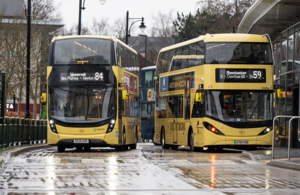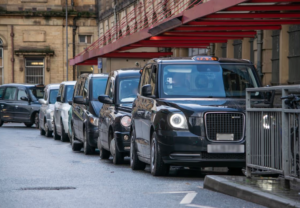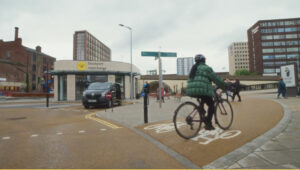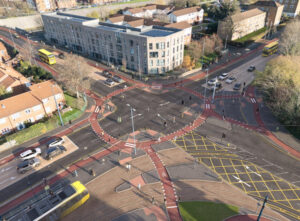Greater Manchester’s Bee Network has racked up 100m locally controlled bus journeys. The important milestone comes just weeks after the third and final phase of bringing buses under local control was completed at the start of the year, with a daily record of 602,000 journeys set on 30 January.
As the first area to franchise buses in 40 years, Greater Manchester is now able to set routes, fares and standards.
It means the performance of Bee Network services are closely monitored – including the use of AI – and interventions made as part of a ‘continuous improvement’ approach to delivering a fully integrated, affordable and accessible network. As a result, a further 16 vehicles are being added to routes in parts of Greater Manchester to further boost the reliability and punctuality of services in Oldham, Rochdale, Salford and Bury – including those to key destinations such as the Trafford Centre, Manchester Royal Infirmary and Royal Oldham Hospital.
Andy Burnham, Mayor of Greater Manchester, said:
“Getting more people on board will allow continue to keep fares low and invest in a reliable public transport network for everyone in Greater Manchester. Hitting 100 million journeys on locally-controlled buses is an incredible milestone for the Bee Network and it shows what we’re doing here is working.
“We’re now gearing up to make one of the biggest changes our public transport network has ever seen. In March, we’ll unite bus and tram together in one joined-up payment system, just like London. With integrated tap-and-go payments, people will have more flexibility than ever before in how they get around the city-region, and will always pay the best daily or weekly fare.
“Keeping fares low and ensuring our buses are reliable is fundamental to the success of the Bee Network. We won’t stand still, we’ll always be looking to improve things – using data and feedback from passengers – to make our network the best it can be.”
Greater Manchester was the first place outside London to limit the cost of travel, with the introduction of the £2 ‘cap’ for a single adult journey (£1 for a child) in September 2022.
Introduced to help people with the rising cost of living, it reduced the average cost of travel for bus users by almost 20% and resulted in a 5% growth in patronage.
A national £2 fare cap scheme was subsequently introduced, and while that rose to £3 in January, Greater Manchester has retained the £2 cap for this year – subject to a mid-year review – due to the decisions it has taken around its bus network.
Improvements to affordability, reliability and punctuality are all part of a major drive to get more people using public transport by making it more attractive and convenient.
The next major milestone for the Bee Network comes in March, when passengers will be able to use contactless payments across both bus and tram journeys, with fares calculated to ensure they always pay the lowest amount for their trip.
The move will see a maximum daily cap of £9.50 (£7.80 if starting a journey after 09.30) and weekly cap of £41 for unlimited bus and tram travel anywhere in Greater Manchester.
























